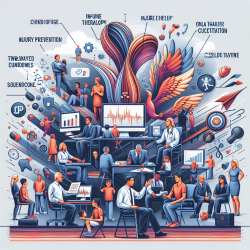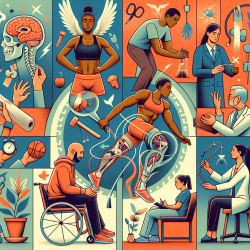In the ever-evolving landscape of clinical diagnostics and research, staying ahead requires practitioners to continually refine their skills and methodologies. The Human Phenotype Ontology (HPO) is a powerful tool that offers a structured approach to understanding and analyzing human phenotypes. As highlighted in the recent research article "The Human Phenotype Ontology in 2024: phenotypes around the world," HPO is not just a database but a dynamic resource that supports genomic diagnostics, gene-disease discovery, and cohort analytics.
Understanding the Human Phenotype Ontology
The HPO provides a comprehensive framework for encoding 'deep phenotype' data, enabling computational inference and supporting sophisticated algorithms. This ontology has become a global standard for rare disease diagnostic tools, enhancing the precision of genomic variant classification. By integrating HPO into clinical practice, practitioners can improve diagnostic accuracy and patient outcomes.
Implementing HPO in Clinical Practice
For practitioners looking to enhance their diagnostic capabilities, incorporating HPO into their workflow can be transformative. Here are some practical steps to get started:
- Familiarize with HPO Tools: Utilize tools such as Exomiser, LIRICAL, SimulConsult, PhenoTips, and Face2Gene that leverage HPO for encoding patient features.
- Participate in Workshops: Engage in workshops and training sessions focused on HPO to learn about its applications in various medical fields such as psychiatry, immunology, and cardiology.
- Collaborate with Experts: Join international efforts to translate and integrate HPO into electronic health records (EHRs) for standardized data exchange.
The Future of Clinical Diagnostics with HPO
The internationalization of HPO allows practitioners worldwide to access phenotypic data in multiple languages, breaking down language barriers in medical research. With over 2239 new terms added recently, HPO continues to expand its reach across various medical fields. This expansion not only enhances diagnostic precision but also fosters global collaboration among researchers and clinicians.
Encouraging Further Research
The potential of HPO extends beyond current applications. By encouraging further research and development, practitioners can contribute to the ongoing evolution of this ontology. Engaging with the broader scientific community through conferences, publications, and webinars can provide valuable insights into emerging trends and innovations within the field.
To read the original research paper, please follow this link: The Human Phenotype Ontology in 2024: phenotypes around the world.










